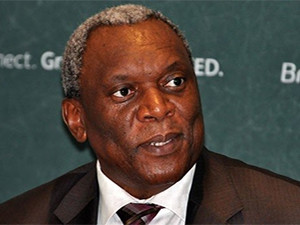
There is a tense relationship between the Department of Telecommunications and Postal Services (DTPS) and telecoms regulator, the Independent Communications Authority of SA (ICASA), if the events at the ICASA Stakeholder Engagement Session are anything to go by.
The regulator held the event yesterday to engage with its stakeholders as well as present its annual performance plan for the 2016-17 financial year.
The tension is as a result of spectrum allocation and the recently published ICT policy white paper.
On 15 July, ICASA issued an invitation to operators to apply for licences for spectrum in the 700MHz, 800MHz and 2.6GHz bands, to be used to provide mobile broadband wireless access services in SA. The regulator said the main aim of licensing spectrum is to ensure nationwide broadband access for all citizens by 2020, in line with the National Development Plan and SA Connect.
However, the minister of telecoms, Siyabonga Cwele, challenged the move at the courts and won an interdict to halt ICASA's planned spectrum auction.
Without fear or favour
During the event yesterday, an attendee asked Reuben Mohlaloga, ICASA acting chairperson, about the nature of the relationship between the regulator and the DTPS, and Mohlaloga joked: "Last night, I had a small prayer and one of the things I prayed about was for this question not to arise."
Nonetheless, he responded that ICASA has defined responsibilities and is mandated to regulate the ICT sector, without fear or favour as well as political or economic influence.
"We appreciate that we operate within certain policy guidelines. The spirit of the law is that we must consider such policies as and when they are made. The matters are in courts, and the minister was granted an interdict and we think that those grounds on which the interdict was granted can easily be clarified when the matter goes to court."
So what are we waiting for?
MTN CEO, Mteto Nyati, also questioned why SA continues to have spectrum that remains unused in the hands of those that are holding on to it, and there are no mechanisms of accessing that spectrum.
However, Pakamile Pongwana, ICASA CEO, was not so diplomatic when addressing the spectrum impasse in his presentation. He pointed out that everything the regulator has done to date was above board.
The country needs to grow and that growth can only come when we release the spectrum.
"There is nothing that is hidden that ICASA was doing. In March, we said to Parliament that we were going to publish the ITA [invitation to apply], and we have published it. It was as if it was not intended or it was a mistake on our part, but that's what the country needs."
He said 700MHz, 800MHz and 2.6GHz spectrum is all available. "So what are we waiting for? We are just waiting for the court case... then we will proceed. I would rather have people comment on how to rectify this in order to make it more meaningful to everybody else.
"The country needs to grow and that growth can only come when we release the spectrum. It's not about the money that we are going to get from the spectrum auction, but it's about the money that the operators are going to invest in the networks."
According to Pongwana, ICASA's first strategic priority area is making spectrum available for broadband.
"That, we are going to do. It is quite interesting that if you look at the ICT white paper and all the comments that you find in the media - talking about things like wholesale open access as if it is something that is outside of the ICASA ITA. It's actually mischievous because within that ITA, there is provision for wholesale open access.
It's not about the money that we are going to get from the spectrum auction, but it's about the money that the operators are going to invest in the networks.
Pakamile Pongwana, ICASA CEO
He also noted the wholesale open access concept has not succeeded anywhere, adding that Mexico started the process in around 2010, but as of now, they are still trying to find a winning bidder - six years later.
"So, if we start here in South Africa, maybe we are too advanced, [more so] than Mexico; I think we'll be able to do it in the next 10 years."
Share